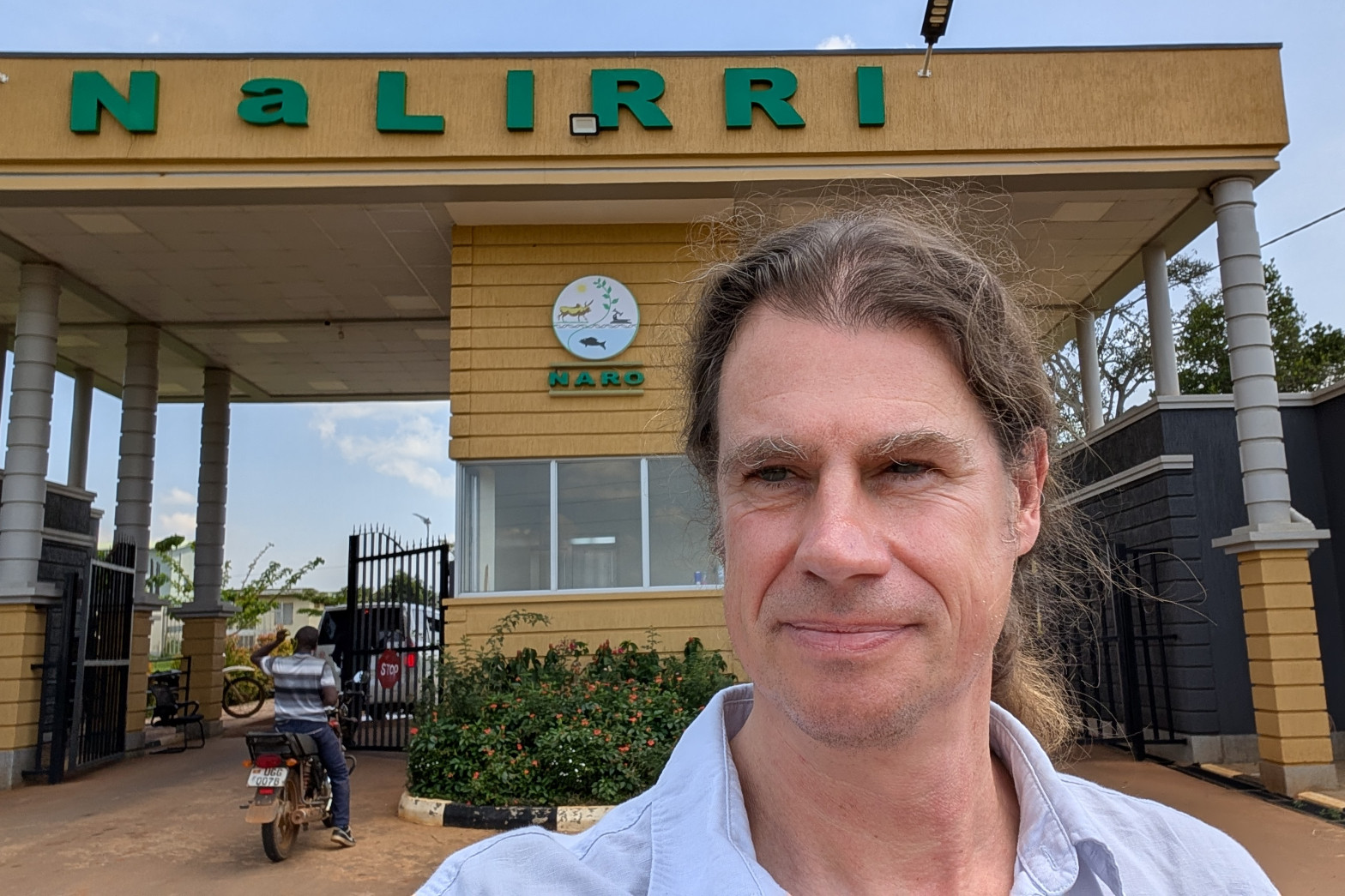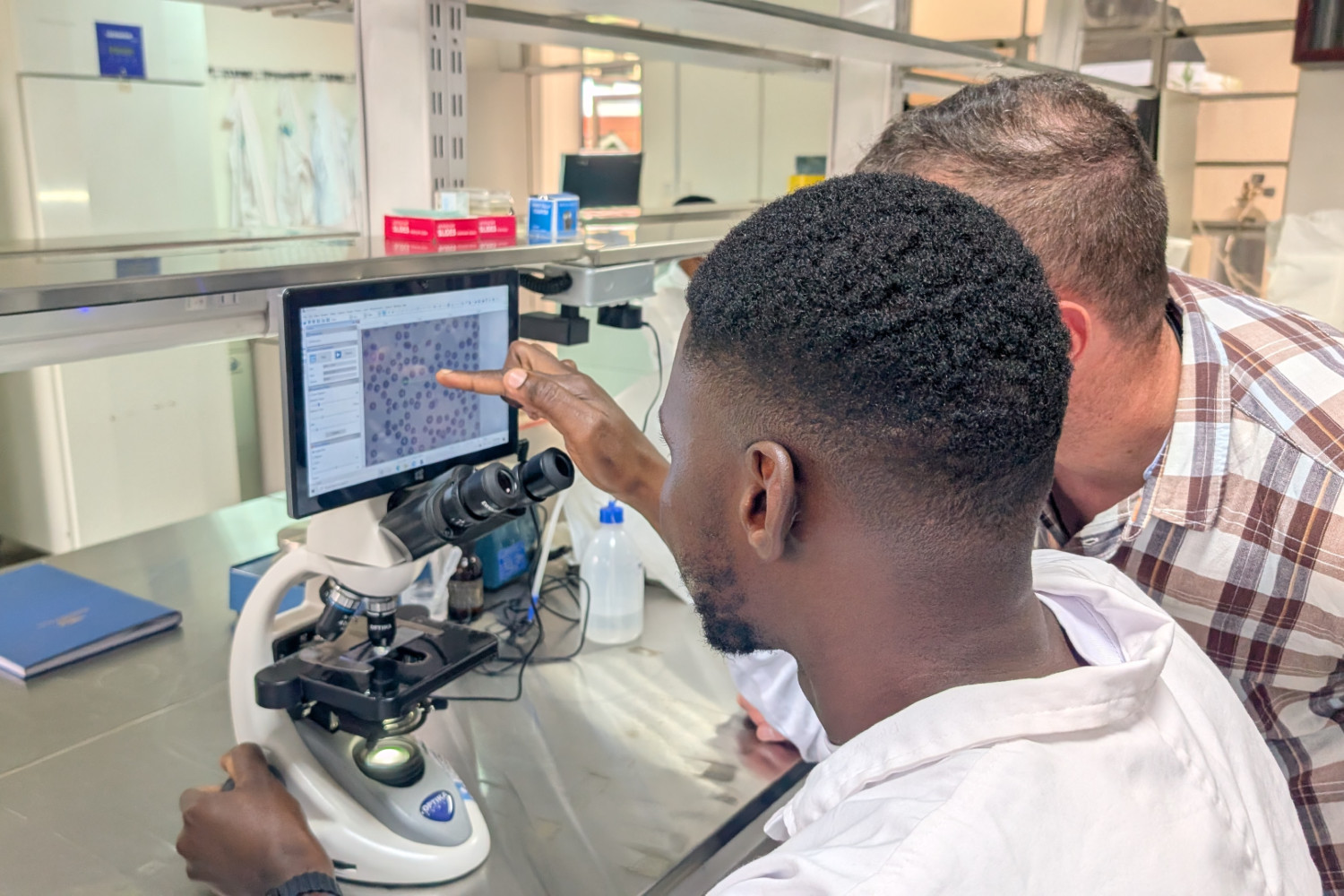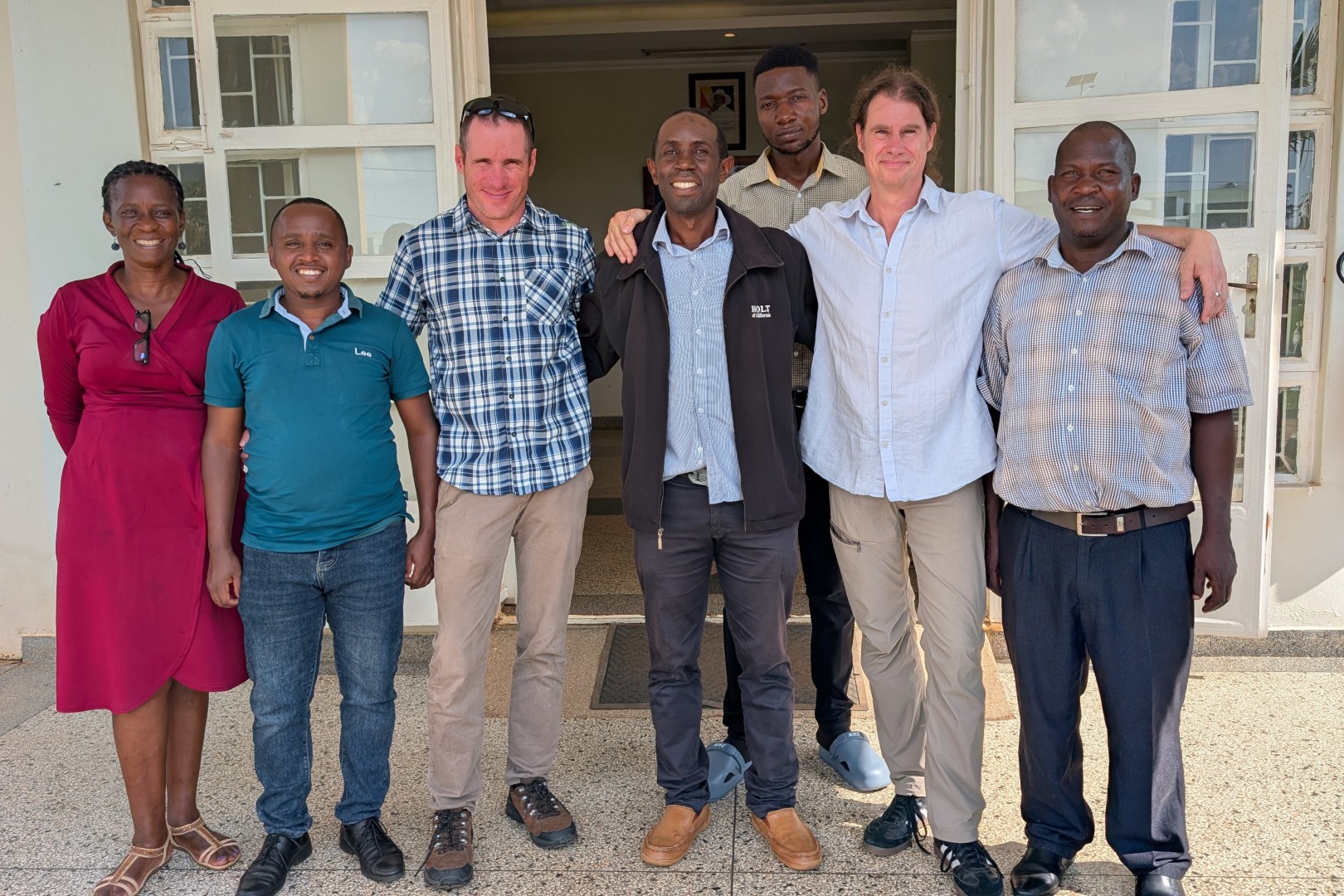Guest in Uganda: TU scientists search for vaccine against East Coast fever
End of October 2025, Professor Michael Hust and Philip Heine visited Uganda. They worked together with Dr. Charles Ndawula and his team in the laboratory of the National Livestock Resources Research Institute (NaLIRRI). Their aim was the construction of gene libraries to identify biomarkers of the East Coast fever. The used technology was developed at the TU Braunschweig. The collaboration between the two research institutions was further strengthened by a memorandum of understanding (MOU) to promote student exchanges.

Professor Michael Hust visiting the National Livestock Resources Research Institute (NaLIRRI) in Uganda. Image credit: Michael Hust/TU Braunschweig
East Coast fever is a disease that affects livestock such as cattle, goats, and sheep and causes a substantial economic damage in agriculture. The disease is caused by the parasite Theileria parva, which is transmitted to animals by ticks of the species Rhipicephalus appendiculatus. for the development of a vaccine, proteins of the parasite and ticks which are recognized by the cattle’s immune system must first be identified. The technology required for this was developed at the TU Braunschweig. During the guest week in the lab of Charles Ndawula, the scientists succeeded in constructing the first gene libraries.

In the laboratory: Together with Dr. Charles Ndawula and his team, Professor Michael Hust and Philip Heine are searching for biomarkers to detect East Coast fever. Image credit: Michael Hust/TU Braunschweig
The NaLIRRI is located outside Kampala, the capital of Uganda, together with other research institutes belonging to the National Agricultural Research Organization (NARO). The institute consists of numerous buildings spread across the site. There are also cattle stable for infection experiments with ticks and a facility for the production of veterinary vaccines. A major challenge in Uganda is the availability of laboratory materials. For this project, numerous reagents had to be purchased in Germany and sent to Uganda in several shipments – a costly process that is further complicated by transport and customs regulations.
Also outside the laboratory, Michael Hust and Philip Heine gathered several new impressions. They were particularly impressed by the traffic in Kampala—an apparent “chaos” of cars and trucks surrounded by countless boda-bodas (small motorcycle taxis). Both were very grateful for the warm hospitality and cooperative partnership in this research project.
A memorandum of understanding was signed for student exchanges between NaLIRRI and TU Braunschweig. Dr. Ndawula and Michael Hust hope that this will lead to an active and fruitful student exchange between the two institutions in the future.

Visiting Uganda: Philip Heine and Michael Hust, two biotechnologists from TU Braunschweig, are working with local scientists on gene libraries. Thank you very much for your hospitality! Photo credit: Michael Hust/TU Braunschweig
